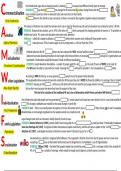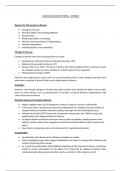Individualisation Study guides, Class notes & Summaries
Looking for the best study guides, study notes and summaries about Individualisation? On this page you'll find 46 study documents about Individualisation.
Page 3 out of 46 results
Sort by
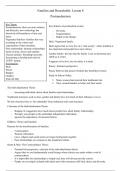
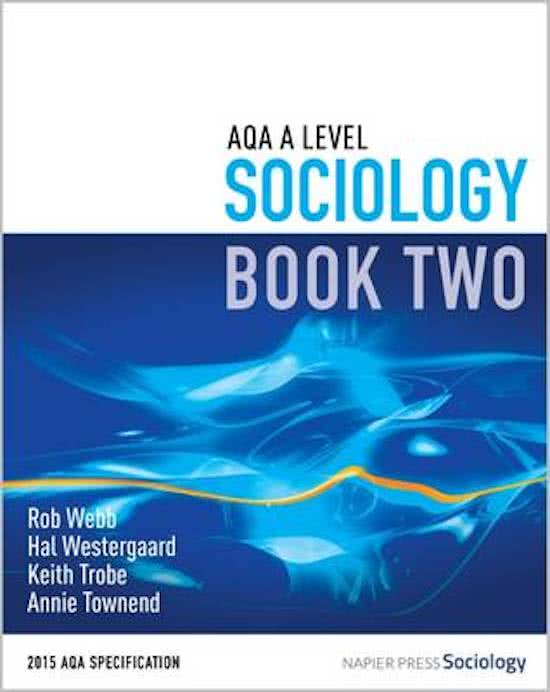
-
Families and Households: Postmodernism and Social Policy
- Other • 3 pages • 2023
- Available in package deal
-
- $5.16
- + learn more
For anyone studying Families and Households in Sociology at A or AS Level, this document provides a thorough companion to your classes and textbook. Lesson 8/8 focuses on Postmodernism and Social Policy: views, reasons, case studies and evaluations, as well as all key terms and sociologists specified in a single textbox and a summary provided at the end. These notes are perfect for when your own feel a little sparse, or you just don't understand the topic covered. From a student who achieved an...
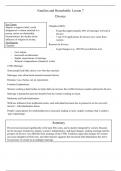

-
Families and Households: Divorce and Life Course Analysis
- Other • 2 pages • 2023
- Available in package deal
-
- $4.51
- + learn more
For anyone studying Families and Households in Sociology at A or AS Level, this document provides a thorough companion to your classes and textbook. Lesson 7/8 focuses on Divorce and Life Course Analysis: views, reasons, case studies and evaluations, as well as all key terms and sociologists specified in a single textbox and a summary provided at the end. These notes are perfect for when your own feel a little sparse, or you just don't understand the topic covered. From a student who achieved a...
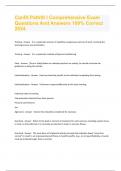
-
Canfit Pathfit I Comprehensive Exam Questions And Answers 100% Correct 2024.
- Exam (elaborations) • 8 pages • 2024
-
- $7.59
- + learn more
Training - Answer It is a systematic process of repetitive, progressive exercise of work, involving the learning process and acclimation. Training - Answer It is a systematic method of physical conditioning False - Answer [True or False] Before an individual perform an activity, he should not know the guidelines in doing the activity. Individualisation - Answer Exercise should be specific to the individual completing the training. Individualisation - Answer Performers respo...
Reasons for Family Diversity - Commercialisation, Ambition, Medicalisation, Welfare Legislation, Individualisation, Family Legislation, Secularisation
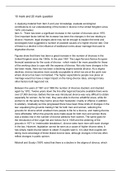
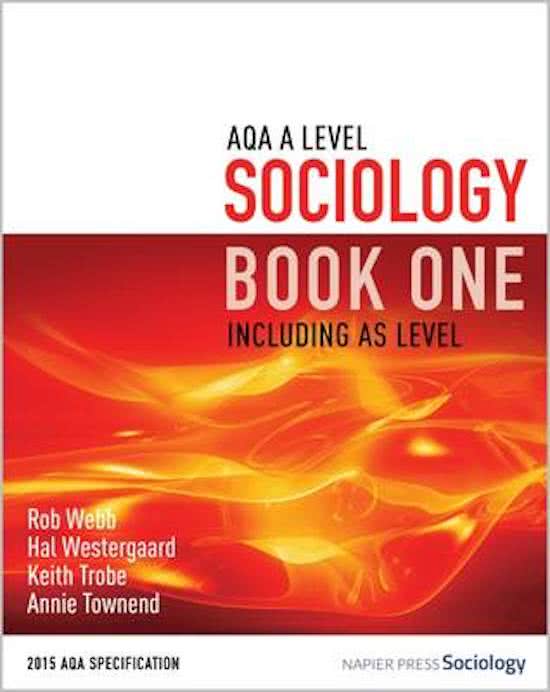
-
Applying material from Item A and your knowledge, evaluate sociological contributions to our understanding of the trends in divorce in the United Kingdom since 1970. (20 marks)
- Exam (elaborations) • 4 pages • 2021
- Available in package deal
-
- $9.68
- 4x sold
- + learn more
What are the reasons as to why divorce rates had a sudden rise in the 1960s. Talks about the many different ways in which this could be explained for instance declining stigma, secularisation and so on.
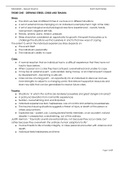
-
MGG2602 Exam Summaries.
- Exam (elaborations) • 87 pages • 2021
-
- $3.69
- + learn more
MGG2602 Exam Summaries. MGG2602 - Sexual Trauma. THEME ONE - DEFINING STRESS, CRISIS AND TRAUMA Stress: The strain we feel at different times in our lives or in different situations. A set of external forces impinging on an individual (unemployment, high crime rate) A set of psychological and physiological reactions experienced – sweaty hands, racing heart, negative self-talk. Nerves, anxiety, panic, tension, pressure. Stress should be considered an opportunity for growth; the spark tha...
Changing Family Patterns - Divorce summary. This document includes the reasons why divorce has increased, key sociologists and evaluation points in detail.

-
PLS1502 African Philosophy notes.
- Summary • 17 pages • 2022
-
- $3.49
- + learn more
PLS1502 African Philosophy notes. Chapter 1 Defining African philosophy 1. In his discussion of the Africanity of African Philosophy, Osuagua identifies four factors that can be used to characterise someone as African, Discuss briefly those factors. Jun 217 16 Marks Answer below 2. Describe what is African Philosophy Nov 2017 5 Marks African Philosophy can be formally defined as a critical thinking by Africans on their experiences of reality. African philosophy is "that which concer...
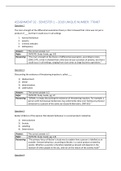
-
CMY3701 - THE EXPLANATION OF CRIME_ ASSIGNMENT 02.
- Exam (elaborations) • 156 pages • 2021
-
- $3.49
- 1x sold
- + learn more
CMY3701 - THE EXPLANATION OF CRIME_ ASSIGNMENT 02 . The main strength of the differential association theory is that it showed that crime was not just a product of ___ but that it could occur in all settings. 1. learned behaviour 2. poverty 3. criminal attitudes 4. delinquency Answer: The correct answer is 2 Refer: CMY3701 Study Guide, pg. 102 Reasoning: “The main strength of the theory of differential association, according to Jones (2001:147), is that it showed that crime was not ju...

-
CRW1501 EXAM PREPARATION.
- Exam (elaborations) • 44 pages • 2021
-
- $3.69
- + learn more
CRW1501 EXAM PREPARATION. Introduction To The General Principles Of Criminal Law. LEGALITY (continued) • A court can only convict and punish an accused for a crime if the conduct is recognised by the law (statutory or common law) as a crime. Courts, in other words, can not create new crimes. The conduct must also have some penalty attached to its commission. • The conduct of the accused person must have been recognised as a crime at the time of its commission. This rule is referred to ...

How did he do that? By selling his study resources on Stuvia. Try it yourself! Discover all about earning on Stuvia

